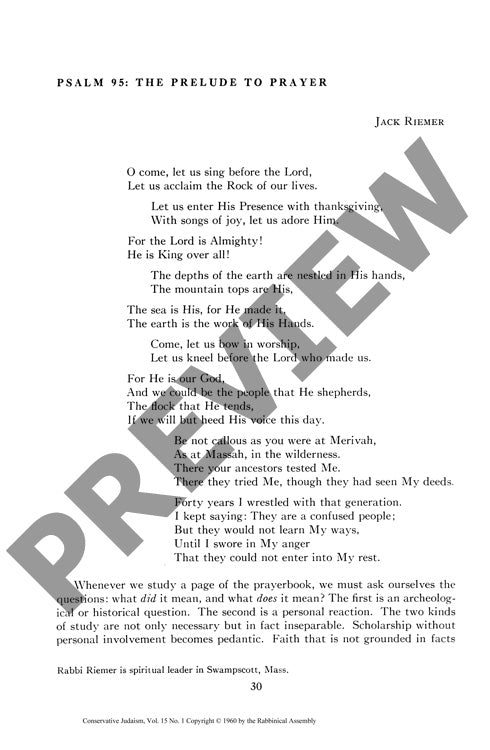Psalm the Prelude to Prayer
Couldn't load pickup availability
Psalm 95's dual nature as both ancient temple entrance hymn and spiritual preparation guide reveals a timeless theological principle: authentic worship demands moral character rather than mere ritual observance. Through historical-critical and liturgical analysis, the psalm's original function emerges as an entrance liturgy within Israelite temple worship, paralleling yet distinctly departing from other ancient Near Eastern religious traditions. Its two-part structure—flowing from Creator-praise to divine warning—established ethical prerequisites for approaching the sacred, contrasting sharply with contemporary pagan practices that emphasized sacrificial offerings regardless of worshipper intent. When sixteenth-century Kabbalists of Safed incorporated the psalm into Sabbath evening liturgy, they reinterpreted the Hebrew term *menucha* (rest) to bridge ancient temple entrance themes with Sabbath preparation practices. Employing textual analysis and comparative methodology, this research demonstrates how Psalm 95 functions as a "prelude to prayer" across historical contexts, consistently calling worshippers to ethical introspection and spiritual readiness before engaging in religious practice. The psalm's enduring significance lies in its persistent challenge to practitioners: authentic worship begins not with ritual, but with moral integrity.

More Information
-
Physical Description
-
Publication Information
Published 1960
ISBN
-
Publication Credits
Jack Riemer

